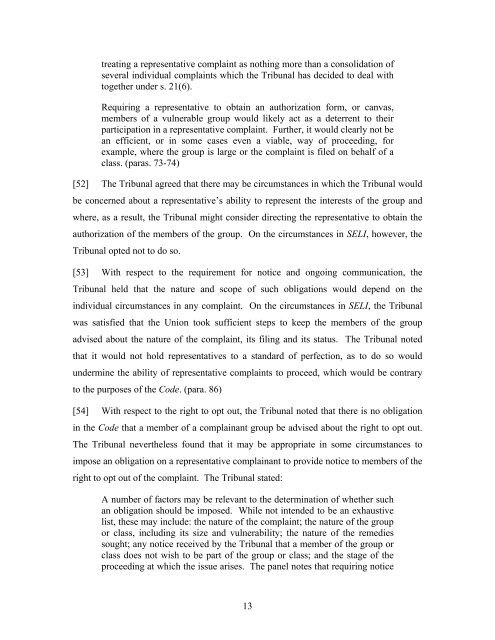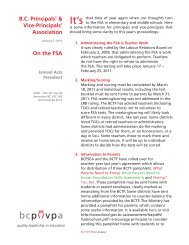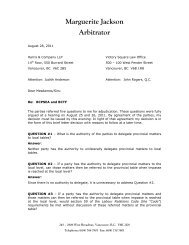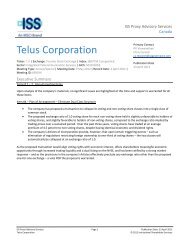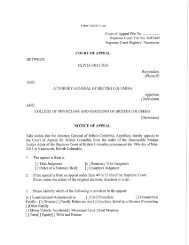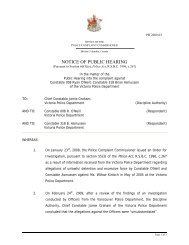Corren and Corren obo others v. Abbotsford School Board, District ...
Corren and Corren obo others v. Abbotsford School Board, District ...
Corren and Corren obo others v. Abbotsford School Board, District ...
You also want an ePaper? Increase the reach of your titles
YUMPU automatically turns print PDFs into web optimized ePapers that Google loves.
treating a representative complaint as nothing more than a consolidation of<br />
several individual complaints which the Tribunal has decided to deal with<br />
together under s. 21(6).<br />
Requiring a representative to obtain an authorization form, or canvas,<br />
members of a vulnerable group would likely act as a deterrent to their<br />
participation in a representative complaint. Further, it would clearly not be<br />
an efficient, or in some cases even a viable, way of proceeding, for<br />
example, where the group is large or the complaint is filed on behalf of a<br />
class. (paras. 73-74)<br />
[52] The Tribunal agreed that there may be circumstances in which the Tribunal would<br />
be concerned about a representative’s ability to represent the interests of the group <strong>and</strong><br />
where, as a result, the Tribunal might consider directing the representative to obtain the<br />
authorization of the members of the group. On the circumstances in SELI, however, the<br />
Tribunal opted not to do so.<br />
[53] With respect to the requirement for notice <strong>and</strong> ongoing communication, the<br />
Tribunal held that the nature <strong>and</strong> scope of such obligations would depend on the<br />
individual circumstances in any complaint. On the circumstances in SELI, the Tribunal<br />
was satisfied that the Union took sufficient steps to keep the members of the group<br />
advised about the nature of the complaint, its filing <strong>and</strong> its status. The Tribunal noted<br />
that it would not hold representatives to a st<strong>and</strong>ard of perfection, as to do so would<br />
undermine the ability of representative complaints to proceed, which would be contrary<br />
to the purposes of the Code. (para. 86)<br />
[54] With respect to the right to opt out, the Tribunal noted that there is no obligation<br />
in the Code that a member of a complainant group be advised about the right to opt out.<br />
The Tribunal nevertheless found that it may be appropriate in some circumstances to<br />
impose an obligation on a representative complainant to provide notice to members of the<br />
right to opt out of the complaint. The Tribunal stated:<br />
A number of factors may be relevant to the determination of whether such<br />
an obligation should be imposed. While not intended to be an exhaustive<br />
list, these may include: the nature of the complaint; the nature of the group<br />
or class, including its size <strong>and</strong> vulnerability; the nature of the remedies<br />
sought; any notice received by the Tribunal that a member of the group or<br />
class does not wish to be part of the group or class; <strong>and</strong> the stage of the<br />
proceeding at which the issue arises. The panel notes that requiring notice<br />
13


